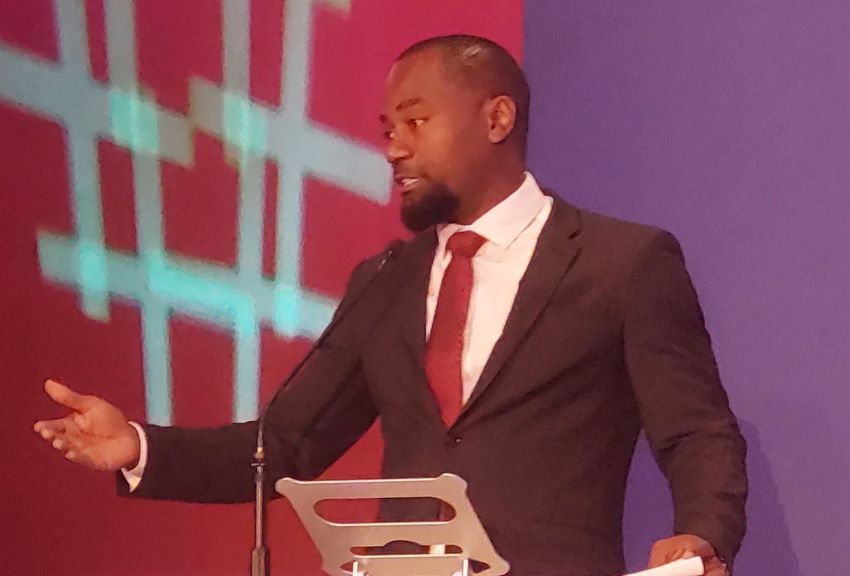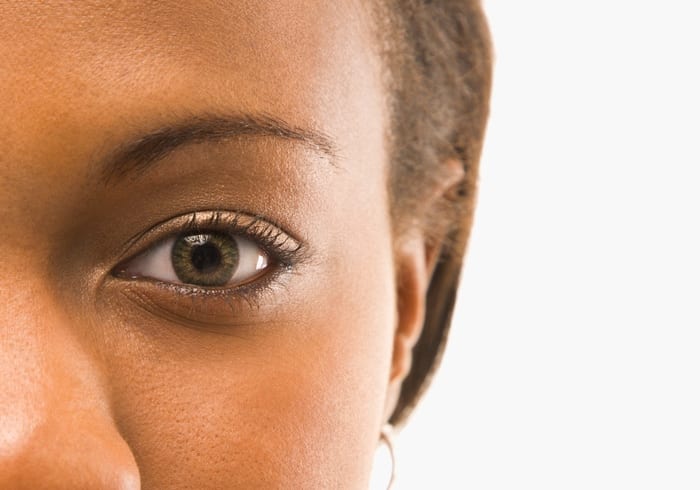
A global approach to the issue of eye health has been called for by this island’s Minister of People Empowerment and Elder Affairs, Kirk Humphrey.
The appeal came earlier this week as he delivered the keynote address at the International Agency for the Prevention of Blindness (IAPB) 2030 IN SIGHT LIVE in Mexico City, Mexico, which was held from June 25 to 27.
The Minister stressed that the issue of eye health could not be addressed as an isolated phenomenon but within the context of a global approach to focus on this matter in a systematic way.
While pointing out that he shared the view “the future is not what it used to be and we too must adapt”, he added this was necessary as the last decade had been one of intersecting global crises.
“Geopolitical conflict, the impact of climate change events, human displacement, hunger, extreme poverty, and the pandemic. Developing countries, including small island developing states (SIDS) like Barbados, are particularly vulnerable to these crises. Their infrastructure and health systems, already fragile, are disrupted, and issues like vision impairment are deprioritised and left untreated,” said Mr. Humphrey.
The Minister lamented that persons with disabilities, specifically those with visual challenges, were often left out of the very systems put in place to offer social protection in times of crises. Elaborating, he said: “Responses meant to protect the most vulnerable, sadly, often refuses to see them. But the system, however, is not blind, it merely refuses to see those they think are easy to ignore.”
Furthermore, he noted that one in every ten of these persons, like in international trends, were over age 65 and their vision impairment contributed to social isolation, difficulty walking, a higher risk of falls and fractures, and a greater likelihood of early entry into nursing or care homes.
Mr. Humphrey further posited the view that the issue of eye health does not receive the attention it deserves despite its debilitating effect on the people it affects. Noting that globally, 2.2 billion people suffer with some form of vision impairment, he told the delegates that 16 per cent of Barbados’ population of persons with disabilities (PWDs) have eye health issues, constituting the largest category of PWDs.

He also pointed out that for school-aged children, vision impairment can lead to lower levels of educational achievement. It can be seen “as an inability to learn or have you written off as a deviant child”. “This is real, and it is evident that poor eye health severely impacts quality of life,” Mr. Humphrey remarked.
The People Empowerment Minister emphasised the need to galvanise resolve to change both the system and policy framework that inform it.
“This is our work. In this vein, the United Nations has outlined an ambitious agenda for the next five years, articulated in the UN Secretary-General’s report, ‘Our Common Agenda’, which provides a comprehensive roadmap to accelerate progress across all SDGs, focusing on inclusivity, resilience, and sustainability. It is imperative that eye health stands as a critical pillar in this framework,” Mr. Humphrey outlined to his counterparts and others present.
He said there had been considerable progress towards improving access to eye health services and raising awareness in respect of the importance of vision for all. Those gathered at the global meeting also heard Barbados had established specialised public paediatric eye care clinics and was actively working to implement comprehensive vision screening programmes to address the eye care needs of its children.
The Empowerment Minister further outlined that at the Small Island Developing State Conference in Antigua last month, the international community adopted a new 10-year plan of action for SIDS’ sustainable development which included a commitment on recognising and addressing the growing challenges of eye health.
The IAPB 2030 IN SIGHT LIVE was launched in 2021 and unites stakeholders across the eye health sector with the singular goal of eradicating avoidable sight loss by 2030. The conference fosters a collaborative environment where shared knowledge, discussion, and unwavering commitment are catalysts for eliminating avoidable blindness.
